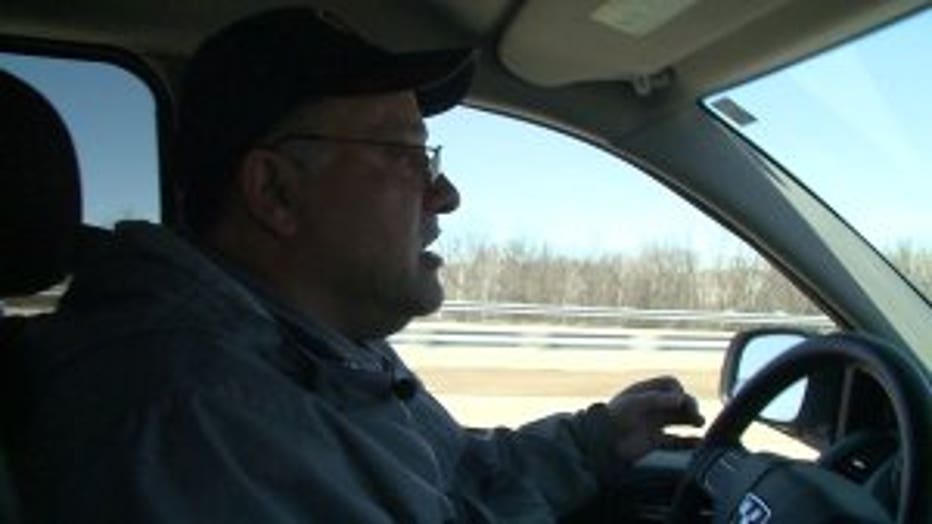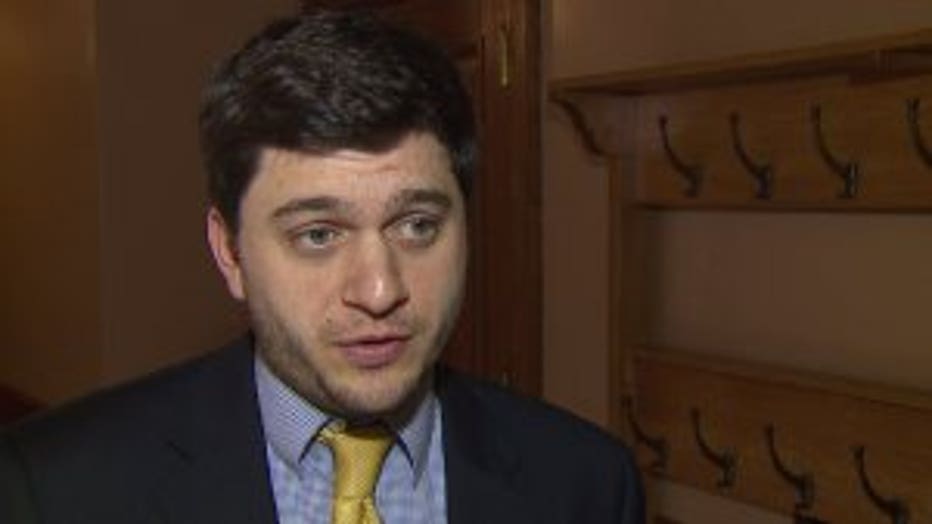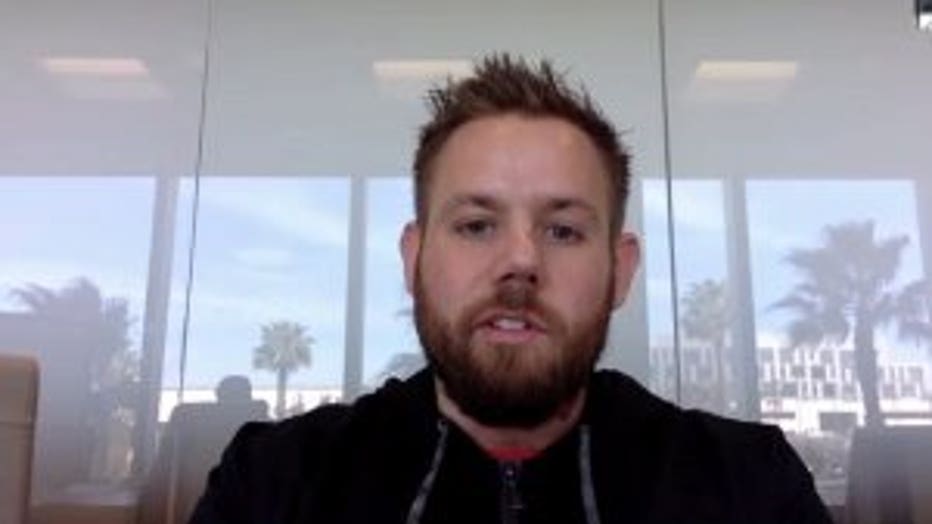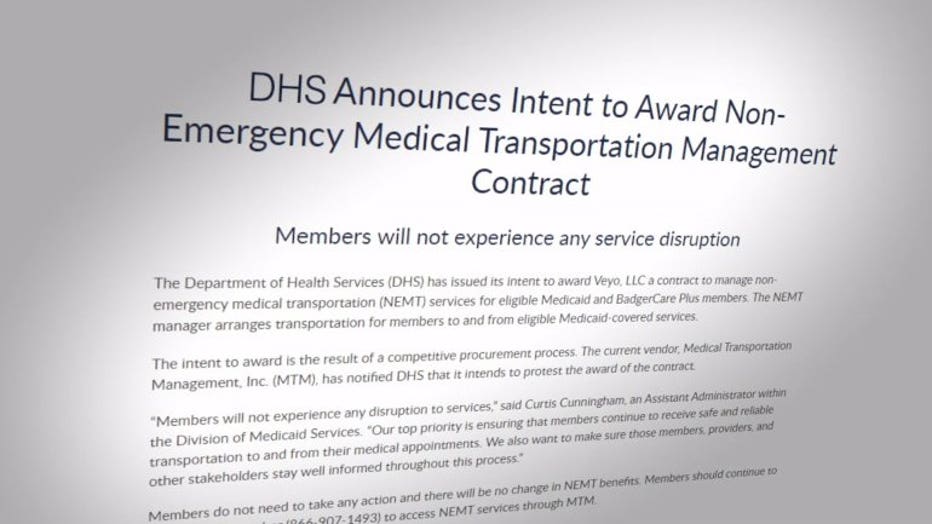What a change to the state's non-emergency med rides could mean for riders
MILWAUKEE -- $87 million. That's how much the state of Wisconsin spent last year on medical transportation for people who can't get to their appointments. It's a massive state contract that could change hands. Some worry there will still be the same old problems. Some see an opportunity for positive change. Despite Nick Golich having a dozen employees, you'll often find him behind the wheel for C & W Med Rides. "The amount of calls and everything that we have is overwhelming," said Golich.

Nick Golich with C & W Med Rides.
C & W provides medical transportation. Soon, the company responsible for overseeing medical rides in Wisconsin could change. Golich says he's worried the underlying problems - won't. "You have to do back-to-back runs, multiple people in vehicles to really make it," said Golich. Non-emergency medical transportation in Wisconsin is run by a ride broker called MTM, who has a state contract. 28,000 people on Medicaid and BadgerCare Plus booked rides through MTM last year. "There aren't enough transportation companies to cover all those calls," said Golich. Golich says companies like his are struggling to make ends meet with tight budgets and an aging population that's increasing in number. It's an issue he spoke of at the Capitol. "I have to pay my employees at the poverty rate," said Golich. The meeting of transportation providers comes after Wisconsin announced plans to award its next contract to Veyo, a company based in California. "I think under the current provider, MTM, the system has not been working well at all," said State Representative Tim McGuire.

Rep. Tim McGuire
Transit providers say financial difficulties, fewer transportation companies and miscommunication have led to canceled rides and no-show rides. Rider Laurie Wagner says she was stranded at her dentist for nearly four hours before a relative picked her up. "I was so totally frustrated," said Wagner. "I don't want anyone else sitting like that." "One difference with our model is that we can provide some relief because of our investments in technology," said Josh Komenda, President of Veyo.

Josh Komenda, Veyo President
Komenda says it aims to streamline costs with more efficient service using Veyo's GPS and cloud-based technology. "There's a capability to deliver a lot more accuracy and tracking. To hold providers accountable and help providers get better," said Komenda. But whether Veyo will be awarded the state's contract is unclear. MTM filed a protest, claiming 'Veyo lacks a minimum of 5 years experience" and "that limited experience has led to significant service problems in other states.' CLICK to read MTM's Bid Protest Letter An audit in Connecticut found Veyo 'does not always remove drivers who do not meet requirements...does not record all complaints... fails to meet contractual performance standards.' CLICK to read Veyo performance audit filed in Connecticut "Some of that had to do with the way the contract had been set up," said Komenda. "Many of the recommendations have already been implemented." In Wisconsin, some have high hopes looking forward. "I'm very optimistic things are going to get better," said Rep. McGuire. Others are unconvinced. "I don`t think anything is gonna change," said Golich. "It`s gonna be the same thing." Other private transportation providers think there's an opportunity for improvement within the industry, regardless of which company is awarded the contract. "Every time there's a change in the contract, there's an opportunity to fine-tune how Wisconsin works with the vendor," said Karl Schulte, general manager for Brown Cab Services, Inc. Veyo was launched in 2015, but says its parent company has been in operation longer. There's still no word on when this transition would happen.

Department of Health Services says, "members will not experience any service disruption."

